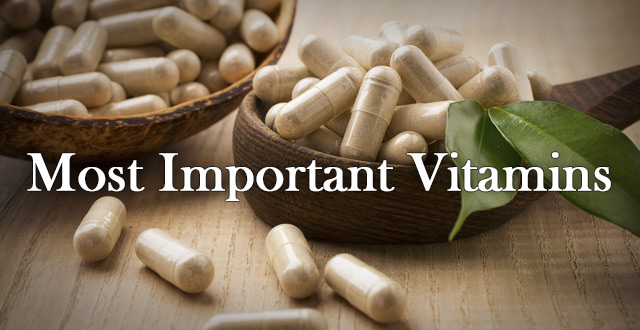In an article published by U.S. News & World Report,
A recent study of older women suggests multivitamins may not be as helpful as people think. In the study, researchers found an increased risk of death in older women taking several commonly used vitamin and mineral supplements. Although these findings may seem troubling, you should not stop taking vitamins that your doctor has prescribed unless told to do so.
What are the most important vitamins for seniors?
Four vitamins top the list for people over 65. Vitamin D, calcium, iron and vitamin B12 can all be detrimental if you have deficiency.
The best advice is to see your physician. They can definitively tell you which vitamins and minerals, and in what dosage, to take.
Vitamin D
Due to its beneficial effects, vitamin D has seen more and more use over the years. In the body, vitamin D helps your body absorb calcium from the gut and is essential for strong, healthy bones. It can help reduce the risk of osteoporosis, a condition that makes your bones brittle and more prone to breaking. Taking the right amount of vitamin D may also reduce the risk of certain cancers and heart disease.
Calcium
Almost all the calcium in your body is found in your bones. As you age, calcium tends to leave your bones, which can put you at risk for osteoporosis. Deficiency may also put you at risk for osteomalacia, which is a softening of the bones. To maintain strong bones as you age, you should do weight-bearing exercises, such as brisk walking, golf or dancing. Because vitamin D helps you absorb more calcium, your doctor may recommend supplementation with both of these nutrients at the same time.
Iron
Iron is an important mineral found in red blood cells. Red blood cells are the oxygen-transporting cells of your body. Iron deficiency may lead to anemia, which is a condition that develops when your body does not have enough healthy red blood cells. A common symptom of anemia is fatigue.
When people get older, they may not consume enough iron in their diets, or their bodies absorb less iron. Because iron is found in red blood cells, bleeding caused by ulcers, injury or even surgery may cause iron loss. As with all supplementation, you should not begin taking iron unless told to do so by your doctor.
Vitamin B12
Vitamin B12, or cyanocobalamin, is used by all the cells in your body, especially the ones in your brain and spinal cord. If you become deficient, you may experience confusion, agitation or hallucinations. As you get older, you may not absorb vitamin B12 as well. Because vitamin B12 is found mostly in animal protein, you can become deficient if you are a vegan or vegetarian. Like iron deficiency, lacking too much vitamin B12 may lead to anemia.

